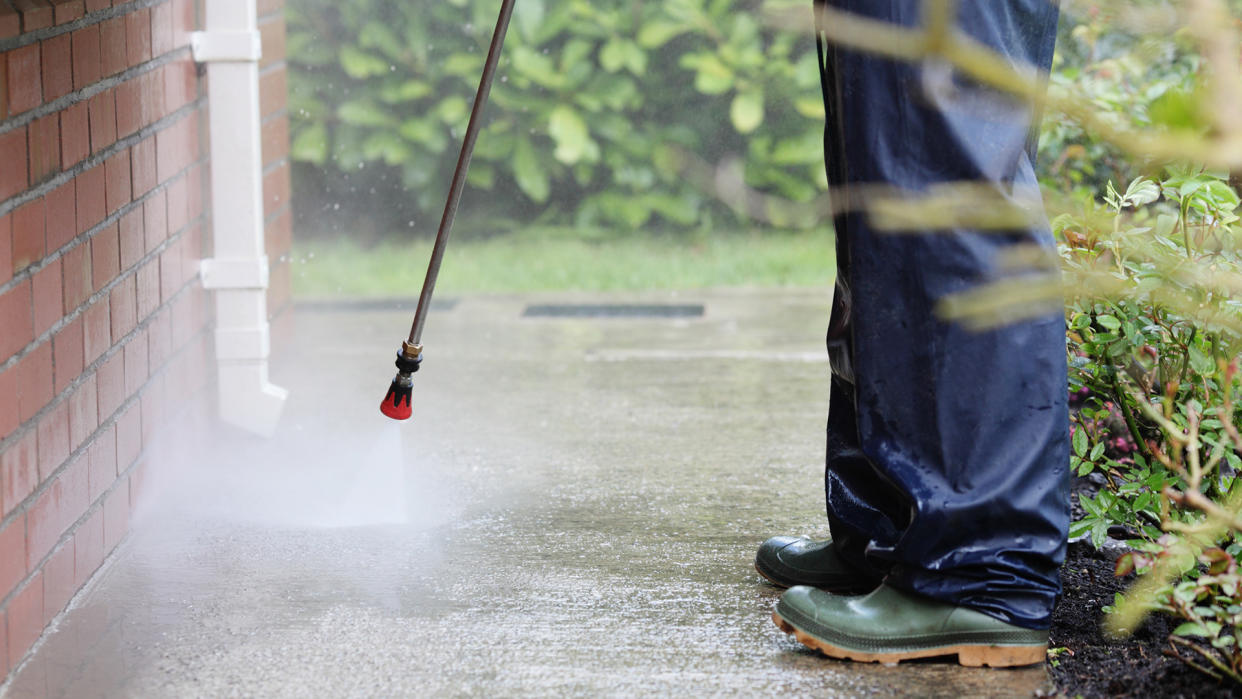What to do when your pressure washer won't build pressure

There’s nothing like the satisfaction of admiring the transformation after you’ve pressure washed your home. However, it can be frustrating if your pressure washer isn’t cooperating. Here we’ll walk you through what to do when your pressure washer won’t build pressure.
With basic troubleshooting know-how, you can address issues and focus on the task at hand. We’ll look at common causes of a lack of pressure and how to tackle them. Pressure washers offer a fantastic way to prevent the accumulation of moss and algae that can cause problems in the long term. If your pressure washer is beyond repair, why not check out our guide to the best pressure washers?
For now, we’ll dive into what to do when your pressure washer won’t build pressure.
What to do when your pressure washer won’t build pressure
What the expert says…
“Proactive home maintenance can be the difference between mitigating small issues now or tackling more costly home repairs down the line,” says Courtney Klosterman, Consumer Trends Expert at Hippo.
Unsure what to do when your pressure washer won’t build pressure? We’ll walk you through the steps to take.
If your device won’t build pressure, it could be a sign of a blockage. Turn off the engine and detach the hose before taking a closer look. Remove any debris trapped in the nozzle. Check that you’re using a nozzle designed for high pressure rather than a gentler, fan-type. The nozzle will need replacing if damaged.
It pays to be patient when pressure washing. Allow water to run through the hose for a minute to remove trapped air before using your device. Once the water is on, squeeze the trigger to eliminate air pockets.
Another possible source of the problem could be insufficient pressure from your water supply, according to manufacturer Simpson. You’ll need a minimum of 20 PSI which shouldn’t pose a problem for most American households, though you may need a shorter hose if you have a well.
The further the water travels, the more likely it is to lose pressure. That’s why a long hose is often a cause of low pressure. A rookie error is to hold the hose vertically, which makes it hard to build up sufficient pressure.
Using an electric pressure washer? Be sure to connect your device directly to your power supply. An extension cable is a common culprit of low pressure and can lead to stalling.
Discover more guides for the garden…
Best chainsaws
Best leaf blowers
Best patio heaters
Best inflatable hot tubs